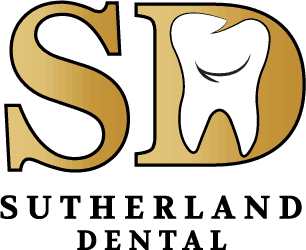Behind the Appointment: How Long Does a Dental Checkup Take?
John, a 40-year-old professional, had not seen a dentist in over ten years. He was hesitant to make an appointment but decided that it was time to take his oral health seriously.
This case study provides an overview of the dental checkup process, what to expect during the checkup, and how long a checkup typically takes.
This article will also provide tips on how to properly prepare for a checkup and post-checkup procedures.
Finally, readers will gain insight into how to maintain their oral health moving forward.
The Basics of a Dental Checkup
An assessment of oral health is conducted during a dental checkup. The purpose of a dental checkup is to detect and prevent oral health issues before they become more serious.
During a dental check-up, the patient is typically asked to sit in the dental chair. The dentist then begins the examination with a visual examination of the patient’s mouth and teeth. The dentist may also take dental X-rays to get a better look at the patient’s mouth.
After the examination, the dentist will typically perform a professional teeth cleaning, which can help remove plaque and tartar buildup. Dental cleanings are important for maintaining good oral hygiene.
Once the examination and cleaning are complete, the patient will be given instructions on how to maintain good oral hygiene, and the appointment will be concluded. The duration of a dental check-up can vary, but typically, it will take around 30 minutes from start to finish.
What to Expect During a Checkup
At a dental checkup, a range of procedures may be performed. The checkup is designed to ensure that the patient’s oral health is in good condition. This includes checking for any signs of disease, checking the patient’s oral hygiene habits, and providing advice on how to maintain good oral hygiene. The dentist will use a mouth mirror to examine the teeth, gums, and tongue. They may also check for any signs of plaque build-up or other issues. They may further discuss the patient’s oral hygiene routine and provide advice on how to improve it.
The amount of time required for a dental checkup will vary based on the patient’s needs. For some, a regular checkup may only take a few minutes, while for others, it may take more time. An anxious patient may require additional time to help them feel at ease during their visit.
For those who have regular checkups and practice good oral hygiene habits, the amount of time for a dental checkup should remain consistent. However, if a patient has not had a dental checkup in a while, it could take longer to ensure that all aspects of their oral health are in order. Additionally, if the patient needs any extra treatments, such as fillings or root canals, it could add extra time to the visit.
Ultimately, dental checkups are an important part of maintaining good oral health. Regular dentist visits and following an oral hygiene routine can help ensure that the patient’s teeth and gums remain healthy. The amount of time for a dental checkup will vary based on the patient’s needs, but it is important to make sure that enough time is allotted to ensure all necessary steps are taken.
The Dental Checkup Process
The dental checkup process typically involves an evaluation of the patient’s oral health and hygiene habits. During the appointment, the dentist will look for signs of tooth decay, gum disease, and other oral health issues. They will also check for a sticky layer of bacteria on the teeth, called plaque, which can lead to cavities and other problems if not removed.
To help prevent dental disease, the dentist may recommend a deep cleaning, fluoride treatment, or other dental care services. They may also suggest a treatment plan to keep the patient’s mouth healthy between regular check-ups.
It is important to have regular dental check-ups, as this allows the dentist to identify any signs of oral health issues and take steps to address them before they become serious.
* Examine signs of tooth decay
* Check for gum disease
* Clean away plaque
* Develop an individualized treatment plan
How Long Does a Checkup Take
A typical evaluation of oral health and hygiene habits usually requires less than an hour. During a dental checkup, the dentist will use a combination of dental tools and visual inspection to assess the patient’s oral health. This usually involves checking for cavities, tartar buildup, and other dental concerns. The dentist may also assess the patient’s oral health habits and may provide advice on how to maintain a mouth-healthy lifestyle.
At the end of the evaluation, the dentist may recommend regular visits or frequent visits, depending on the patient’s individual dental health needs. However, a dental checkup typically does not require any type of dental treatment. The process can be completed in a relatively short amount of time and is often completed within thirty minutes.
How to Prepare for a Checkup
Prior to a dental checkup, it is important to take certain steps to ensure a successful visit. Here are four steps to prepare for a dental checkup:
1. Get familiar with the signs of oral diseases, such as tooth decay, gum disease, and oral cancer, as well as any existing dental issues.
2. Brush and floss regularly to prevent dental problems.
3. Schedule an oral examination to check for signs of decay and any other signs of gum disease.
4. Have an oral prophylaxis to help prevent tooth loss and detect any wisdom teeth infections.
Common Post-Checkup Procedures
Following a dental examination, various procedures may be necessary to maintain oral health. A qualified health practitioner may use special tools to remove pieces of tartar from the teeth. An ultrasonic scaler is often used to help remove tartar and bacteria that cause infection. In addition to cleaning teeth, the practitioner may use a tool to clean soft tissue in the mouth, such as the tongue and the roof of the mouth. This helps to reduce the risk of a bacterial infection and to promote a healthy smile.
Regular cleanings are important for promoting healthy teeth and a dry mouth. This is because dry mouth is a common condition that can cause cavities and other dental problems. To reduce the risk of dry mouth, it is important to drink plenty of water and to avoid sugary drinks. In addition, it is important to brush and floss regularly and to receive regular cleanings from a qualified health practitioner.
Tips for Staying on Top of Your Oral Health
Adopting good oral hygiene habits is essential for staying on top of one’s oral health. Combining regular dental visits with a consistent routine of brushing and flossing can help to reduce the risk of developing oral diseases and other oral health issues.
Here are some tips for staying on top of your oral health:
1. Schedule regular dental appointments: When it comes to oral health, prevention is key. Patients should visit their dentist at least twice a year for routine check-ups. During these appointments, the dentist will review the patient’s medical and dental history, examine the teeth and gums for signs of decay or other issues, and may even offer a quality dental cleaning.
2. Brush and floss regularly: Brushing and flossing are essential for keeping a healthy mouth. Patients should brush at least twice a day and floss at least once a day for optimal oral hygiene.
3. Make healthy dietary choices: Eating a diet full of healthy foods such as fruits, vegetables, and whole grains can help to keep teeth and gums healthy. Avoiding sugary snacks and drinks can also help to reduce the risk of tooth decay.
4. Discuss payment plans with your dentist: Regular dental visits and preventive care can be expensive, so it is important to discuss payment options with your dentist. Many dentists offer payment plans and other financing options that can help make dental care more affordable.
Key Takeaways
At the end of the day, a dental checkup is an important part of maintaining good oral health. Taking the time to understand the process and what to expect helps to make the experience more pleasant and efficient.
With the right preparation, the checkup can take as little as 20 minutes. While it may seem like a daunting task, a dental checkup is a necessary part of preventive care that can help individuals avoid long-term problems and keep their mouths healthy.
With a little bit of effort, it’s easy to stay on top of your oral health and enjoy a much brighter smile.
If you’re looking for a convenient and reliable dental checkup, look no further than Sutherland Dental in Sutherland, NSW. Our experienced team of dentists in Sutherland and dental hygienists will provide you with the best care possible and ensure that your oral health is in top condition. Schedule your appointment today and take the first step towards a healthier, brighter smile!



